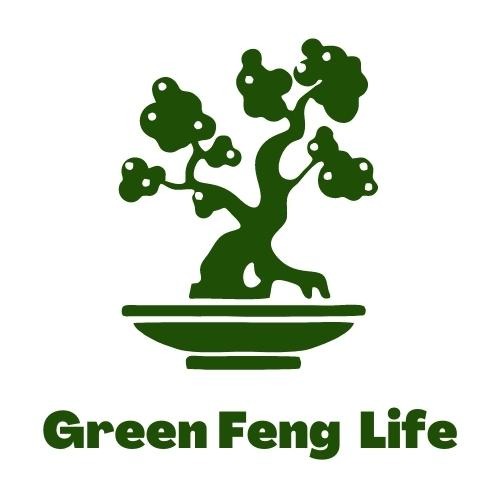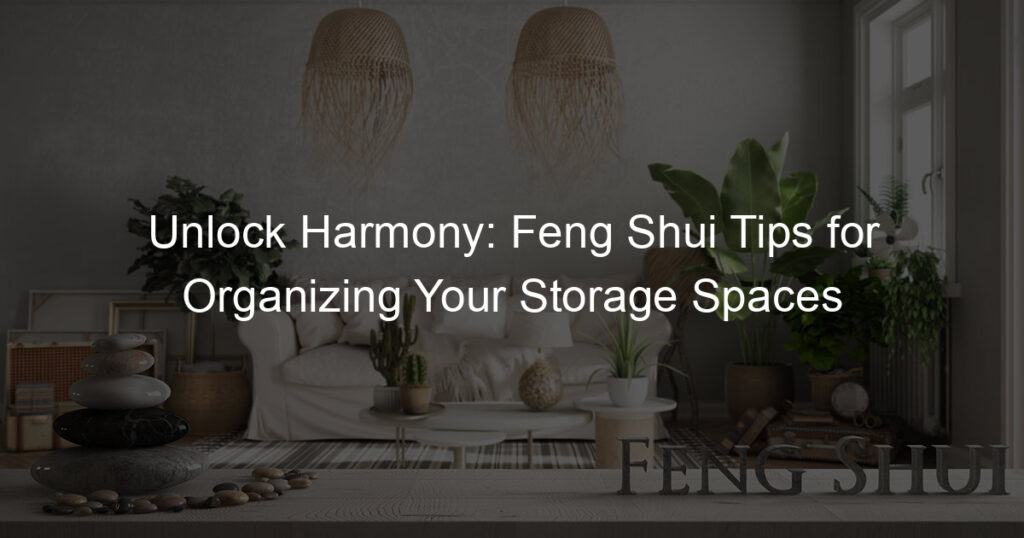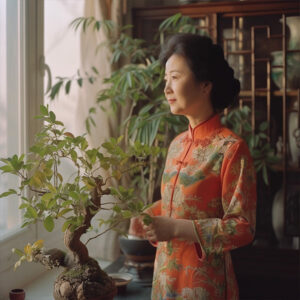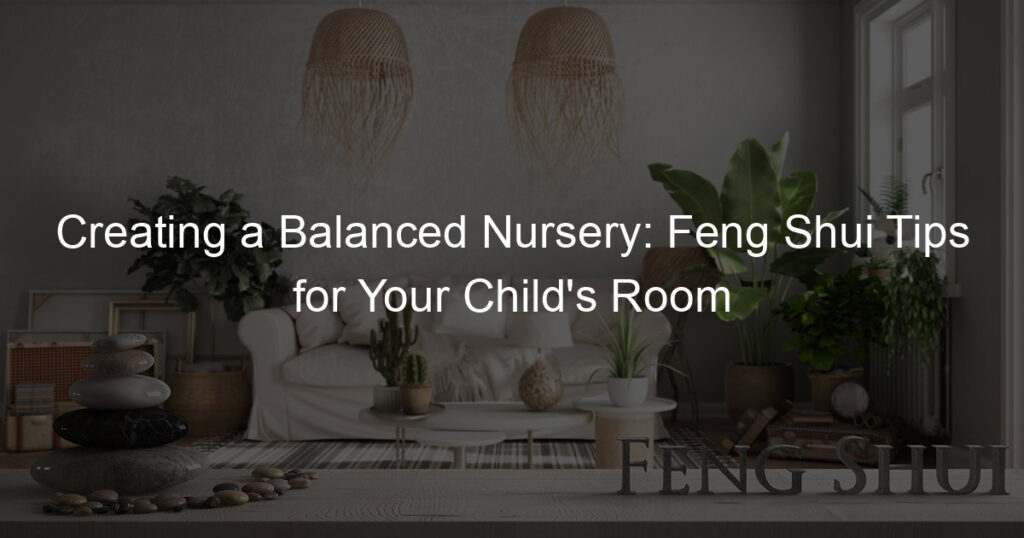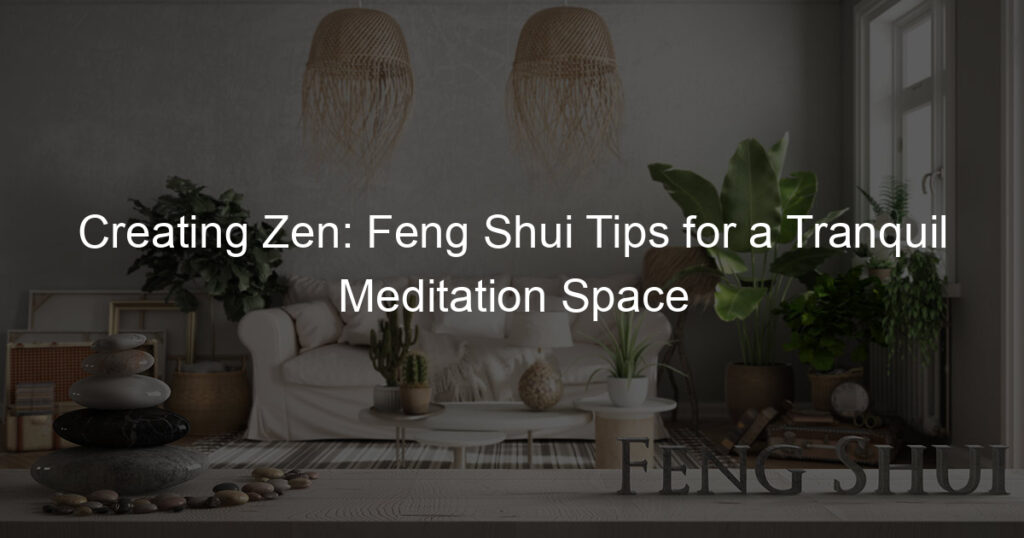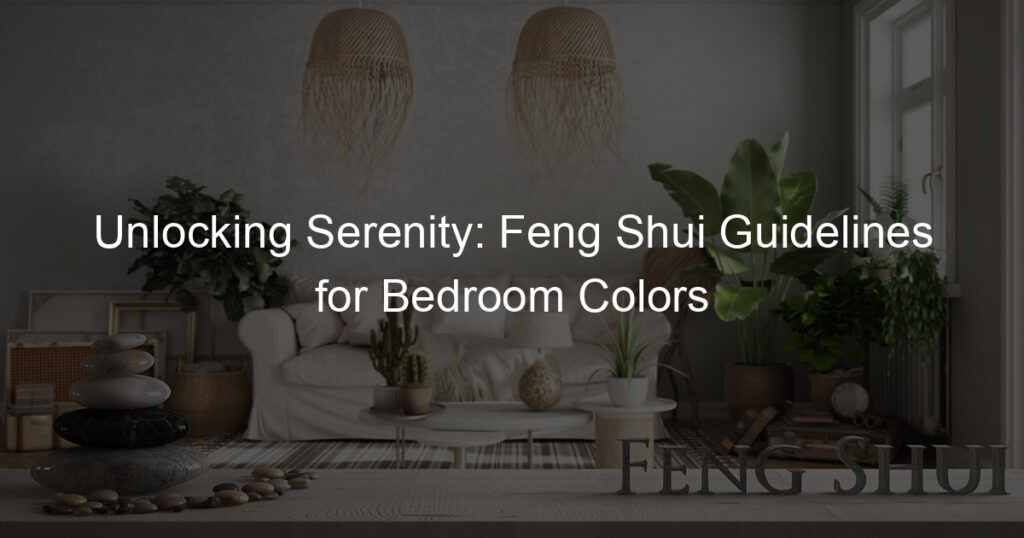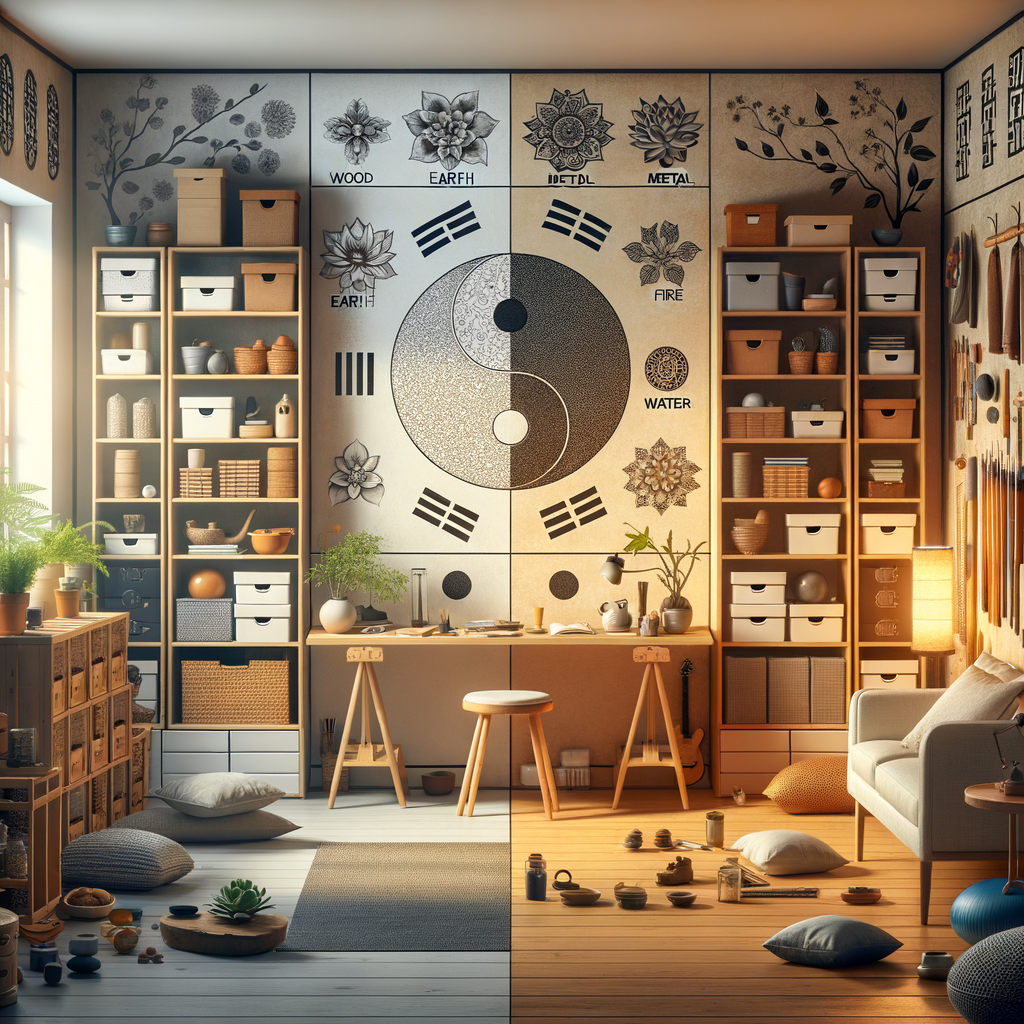
Introduction to Feng Shui Home Organization
Welcome to our comprehensive guide on Feng Shui home organization. In this section, we will explore the basics of Feng Shui, its benefits for your home, and the principles of Feng Shui organization techniques. Let’s dive in!
-
Understanding the Basics of Feng Shui
Feng Shui, a traditional Chinese concept, is all about harmonizing individuals with their surrounding environment. It’s often used in home design to create a peaceful, balanced space. The term Feng Shui translates to “wind” (Feng) and “water” (Shui), two elements associated with good health in Chinese culture. By applying Feng Shui principles, you can create a home that promotes positivity and well-being.
-
Benefits of Feng Shui for Home
Implementing Feng Shui in your home comes with numerous benefits. For starters, it can help improve the flow of positive energy, or ‘Chi,’ in your house. This can lead to a more harmonious and peaceful living environment. Additionally, Feng Shui can help in organizing your space better, making it more functional and aesthetically pleasing. It can also improve your sleep quality, reduce stress, and enhance your overall well-being.
-
Principles of Feng Shui Organization Techniques
Feng Shui organization techniques are based on several principles. These include the Bagua, or the Feng Shui energy map, which guides you on how to arrange your space. The Five Elements theory, which involves balancing wood, fire, earth, metal, and water elements in your home, is another crucial principle. Lastly, the Yin and Yang principle, which emphasizes balance and contrast, is also essential in Feng Shui home organization.
Understanding and implementing Feng Shui can transform your home into a peaceful, harmonious sanctuary. Stay tuned as we delve deeper into Feng Shui storage tips for different rooms, successful case studies, common mistakes, and key takeaways in the following sections.
Feng Shui Storage Tips for Different Rooms
One of the key aspects of Feng Shui is organizing and storing items in a way that promotes positive energy flow. This is particularly important in the living room, where we spend a lot of our time. Let’s dive into some Feng Shui tips for living room storage.
Feng Shui for Living Room Storage
The living room is a central hub of activity in most homes. It’s where we entertain guests, relax with family, and sometimes even work. Therefore, it’s crucial to arrange and store items in a way that promotes harmony and balance. Here are some tips:
- Arranging Furniture for Optimal Energy Flow
- Organizing Home with Feng Shui: Storage Solutions for Living Room
Furniture arrangement plays a significant role in Feng Shui. The way your furniture is arranged can either promote or hinder the flow of energy. For optimal energy flow, place your sofa against a solid wall, preferably facing the door. Avoid blocking natural pathways and keep the middle of the room as open as possible to allow energy to circulate freely.
Clutter can disrupt the flow of energy in your living room. To maintain a harmonious environment, it’s important to have effective storage solutions. Consider using shelves, cabinets, or baskets to store items neatly. Remember, every item in your living room should have a designated place. If it doesn’t, it’s probably clutter.
By arranging your furniture for optimal energy flow and organizing your living room with effective storage solutions, you can create a harmonious and balanced environment that promotes positivity and well-being.
| Tips | Description |
|---|---|
| Arranging Furniture | Place your sofa against a solid wall, preferably facing the door. Keep the middle of the room open to allow energy to circulate freely. |
| Organizing Storage | Use shelves, cabinets, or baskets to store items neatly. Every item should have a designated place to avoid clutter. |
Feng Shui for Kitchen Storage
The kitchen is the heart of the home and it’s important to keep it organized and flowing with positive energy. Let’s explore how to apply Feng Shui principles to your kitchen storage.
- Placement of Kitchen Appliances and Utensils
Where you place your kitchen appliances and utensils can greatly affect the energy flow in your kitchen. According to Feng Shui principles, it’s best to store your appliances and utensils in cabinets or drawers rather than leaving them out on the counter. This helps to create a sense of order and calm.
For instance, your stove, which represents wealth and nourishment in Feng Shui, should be placed in a commanding position. This means it should be in a spot where you can see the door while cooking but not directly in line with it. Similarly, knives should be stored out of sight as they can create a sense of aggressive energy.
- Feng Shui Home Storage Solutions for Pantry
When it comes to pantry organization, Feng Shui principles suggest that you should keep your pantry neat and well-organized. This means removing any expired or unused items and organizing the remaining items by category. This not only makes it easier to find what you need, but it also promotes positive energy.
Additionally, it’s beneficial to use clear containers for your food items. This allows you to see what’s inside, which can help to reduce waste and keep your pantry looking tidy. Remember, a clutter-free pantry is a Feng Shui-friendly pantry.
| Appliance/Utensil | Feng Shui Placement |
|---|---|
| Stove | In a commanding position where you can see the door while cooking but not directly in line with it. |
| Knives | Stored out of sight to avoid aggressive energy. |
By following these Feng Shui tips for kitchen storage, you can create a kitchen environment that is not only organized and functional, but also promotes positive energy and well-being.
Feng Shui for Bedroom Storage
Creating a serene and harmonious bedroom environment is essential for a good night’s sleep. Feng Shui, an ancient Chinese practice, can help you achieve this balance. It involves organizing your bedroom storage in a way that promotes positive energy flow. Let’s explore two key areas: closets and drawers, and under the bed.
- Organizing Closets and Drawers
Closets and drawers are often overlooked in bedroom organization. However, in Feng Shui, they play a significant role in maintaining a balanced energy flow. Cluttered closets and drawers can block positive energy, leading to restlessness and stress.
Start by decluttering your closets and drawers. Remove items you no longer need or use. This simple act can free up space and allow energy to flow more freely. Arrange your remaining items neatly. Clothes should be folded or hung up, and smaller items like accessories should be stored in separate compartments or boxes.
- Feng Shui and Storage Areas: Under the Bed
According to Feng Shui principles, the space under your bed should be kept clear. This area is believed to influence your subconscious mind during sleep. If it’s cluttered or filled with storage items, it may disrupt your sleep and cause anxiety.
If you must use this space for storage, stick to soft items like linens and clothing. Avoid storing items related to work or stress, like office documents or exercise equipment. This can help maintain a calm and peaceful energy in your bedroom.
Remember, the goal of Feng Shui is to create a harmonious environment that promotes relaxation and well-being. By organizing your bedroom storage in accordance with these principles, you can enhance the quality of your sleep and overall health.
| Storage Area | Feng Shui Tips |
|---|---|
| Closets and Drawers | Declutter regularly and keep items neatly arranged. |
| Under the Bed | Keep clear or store only soft, non-stressful items. |
Case Studies: Successful Feng Shui Home Organization
Let’s delve into some real-life examples of how Feng Shui principles have been applied to organize homes effectively. These case studies will provide you with practical insights and inspiration.
-
Case Study 1: Transforming a cluttered home with Feng Shui
Meet Jane, a busy professional who struggled with a cluttered home. She turned to Feng Shui for help. By applying the principle of clearing clutter, she was able to create a harmonious living space. She started by removing unnecessary items and organizing the remaining ones according to Feng Shui guidelines. The result? A more spacious, peaceful, and energy-efficient home. Jane reported feeling more relaxed and productive in her newly organized home.
-
Case Study 2: Feng Shui for a small apartment
Next, we have John, a city dweller living in a small apartment. He wanted to make his space feel larger and more comfortable. With the help of Feng Shui, he was able to do just that. He used mirrors to expand his space visually, placed his furniture in a way that promoted a smooth flow of energy, and used colors that enhanced the feeling of spaciousness. John’s apartment now feels larger, brighter, and more inviting.
-
Case Study 3: Feng Shui home organization for a large family
Finally, let’s look at the Smith family. With five children, their home was always bustling with activity, but it also felt chaotic. They decided to implement Feng Shui principles to bring order and calm. They designated specific areas for different activities, used Feng Shui colors to promote harmony, and arranged their furniture to facilitate a smooth flow of energy. The result was a more organized and peaceful home that accommodated everyone’s needs.
These case studies demonstrate how Feng Shui can be used to create a harmonious and organized home, regardless of its size or the number of occupants. By applying these principles, you too can transform your living space into a sanctuary of peace and productivity.
Common Mistakes in Feng Shui Home Organization
While Feng Shui can bring harmony and balance to your home, it’s easy to make mistakes that can disrupt the energy flow. Let’s discuss some common errors people often make when organizing their homes with Feng Shui principles.
-
Mistake 1: Overcrowding storage spaces
Overcrowding storage spaces is a common mistake in Feng Shui home organization. When you cram too many items into a small space, it can block the flow of energy, or ‘chi’. This can lead to feelings of stress and discomfort. Remember, Feng Shui is about balance. So, try to keep your storage spaces tidy and not too full. This will help the energy in your home flow freely.
-
Mistake 2: Ignoring the importance of decluttering
Another mistake is ignoring the importance of decluttering. A cluttered home can lead to a cluttered mind. In Feng Shui, clutter is seen as a blockage that prevents positive energy from flowing through your home. Regularly decluttering your home can help maintain a balanced and harmonious environment. Start by getting rid of items you no longer need or use. This will make room for new and positive energy to enter your home.
-
Mistake 3: Misunderstanding the concept of energy flow
The third common mistake is misunderstanding the concept of energy flow. Feng Shui is all about the movement and balance of energy within a space. If furniture or other items are placed in a way that disrupts this flow, it can lead to a feeling of imbalance. To avoid this, make sure there is a clear path for energy to flow. For example, don’t place large pieces of furniture in front of doorways or windows. This can block the flow of energy and create a sense of stagnation.
In conclusion, avoiding these common mistakes can help you create a more harmonious and balanced home environment. Remember, Feng Shui is not just about the placement of objects, but also about creating a space that promotes positive energy and well-being.
Key Takeaways: Feng Shui Tips for Home
As we conclude our journey through the world of Feng Shui home organization, let’s recap the most important points. These key takeaways will help you create a home environment that is not only organized but also harmonious and full of positive energy.
- Understanding the Importance of Decluttering
- Organizing Storage Spaces for Optimal Energy Flow
- Applying Feng Shui Principles in Every Room
Clutter is more than just an eyesore; it can actually disrupt the flow of energy in your home. According to Feng Shui principles, a clutter-free home allows for the free flow of positive energy, promoting peace and tranquility. Decluttering doesn’t mean you have to get rid of everything, but rather making sure everything has its place and is organized.
Storage spaces are often overlooked, but they play a crucial role in Feng Shui. A well-organized storage space can enhance the flow of energy in your home. This means keeping your closets, drawers, and shelves tidy and free from unnecessary items. Remember, the goal is to create a space where energy can flow freely, and clutter is the enemy of this goal.
Every room in your home serves a different purpose and therefore, should be treated differently when applying Feng Shui principles. For instance, the bedroom should promote relaxation and rest, while the kitchen should inspire creativity and nourishment. By applying Feng Shui principles in every room, you can create a home that is harmonious and balanced, promoting wellbeing for all who live there.
In conclusion, the principles of Feng Shui can help transform your home into a sanctuary of peace and positivity. By decluttering, organizing your storage spaces, and applying Feng Shui principles in every room, you can create a home that not only looks good but also feels good. Remember, the key to successful Feng Shui is balance and harmony, so strive to create a home that embodies these principles.
